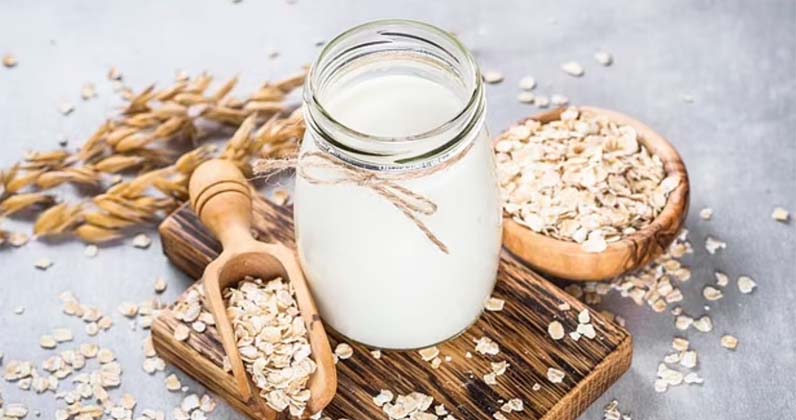
In the modern landscape of dietary alternatives, the prominence of oat milk cannot be denied. From supermarket shelves to trendy cafes, oat milk has swept through the market, captivating the taste buds of many. As consumers increasingly seek plant-based options, oat milk’s popularity seems unstoppable. However, amidst the fervor, the critical question arises – is oat milk genuinely a wholesome option, or is it just another fad? Let’s delve into the nutritional nuances and uncover the truth about oat milk.
The Oat Milk Craze
Oat milk has become a fixture in today’s culinary landscape, infiltrating our kitchens and coffee shops alike. According to recent statistics by market research company Mintel, oat milk reigns as the most favored plant-based milk in the UK, with a staggering one-third of the population opting for it. This enthusiasm has translated into substantial monetary figures, with Britons spending a remarkable £146 million on oat milk in 2020, up from £74 million the previous year.
Oat Milk Nutritional Composition and Health Implications
Dr. Chris van Tulleken, an infectious diseases expert, suggests that oat milk has its merits. In a hypothetical scenario, he proposes choosing oat milk over broccoli on a desert island due to its carbohydrates, fat content, and select vitamins. Nevertheless, it is important to note that oat milk’s nutritional profile may not be as impeccable as it appears.
The Ultra-Processed Predicament
The realm of ultra-processed food (UPF) casts a shadow over oat milk’s seemingly healthful reputation. A UPF, defined as any product containing at least one ingredient absent from a home kitchen, is increasingly linked to adverse health outcomes such as cancer, obesity, inflammation, and early mortality. Astonishingly, UPFs comprise more than half of the average Briton’s caloric intake.
Oat Milk and Ultra-Processing
Concerningly, some of the most recognized oat milk brands – Oatly, Alpro, Mighty, Minor Figures, and Rude Health – are classified as UPFs, a revelation that raises skepticism. While some variants of oat milk escape the UPF label, they still fall short in terms of nutritional value, lacking essential nutrients and failing to provide a substantial sense of fullness.
The Blood Sugar Conundrum
A critical aspect emerges when analyzing oat milk’s impact on blood sugar levels. Research conducted by Dr. Sarah Berry, an associate professor of nutritional studies at King’s College London, reveals that finely ground oats, akin to those found in oat milk, elicit a heightened postprandial response. This heightened response, if excessive, can lead to inflammation, increased hunger, and subsequent overconsumption of calories.
Oat Milk’s Place in a Healthy Diet
While oat milk isn’t inherently detrimental, it also doesn’t hold the exalted status its advertising campaigns might suggest. Contrary to popular belief, cow’s milk offers a spectrum of nutrients, including iodine, calcium, and vitamin B12, that oat milk often requires fortification to match. Dr. Van Tulleken contends that cow’s milk, for those who can tolerate it, constitutes a more beneficial addition to a balanced diet.
The Economics and Ethical Lens
Beyond the nutritional debate, the economics and ethical implications surrounding oat milk warrant attention. Oat milk’s substantial price point, often exceeding that of cow’s milk, is a reflection of the significant profit margins it generates. Interestingly, the ownership of oat milk companies reveals a complex web of investment firms and conglomerates, raising questions about authenticity and ethical alignment.
Embracing Oat Milk Wisely
In the grand tapestry of dietary choices, oat milk undoubtedly has a place. For those who enjoy its taste and texture, it can be a palatable addition to various culinary endeavors. However, consumers are urged to approach the oat milk trend with discernment. While not inherently unhealthy, it is crucial to recognize oat milk’s limitations and consider the broader context of dietary needs and ethical values.
Conclusion
As oat milk continues to dominate supermarket shelves and coffee menus, it’s essential to discern fact from fiction. While oat milk boasts certain nutritional advantages, it also shares a landscape with ultra-processed foods that raise concerns about overall health. The decision to embrace oat milk should be rooted in a comprehensive understanding of its nutritional composition, its role in a balanced diet, and the larger economic and ethical considerations at play.